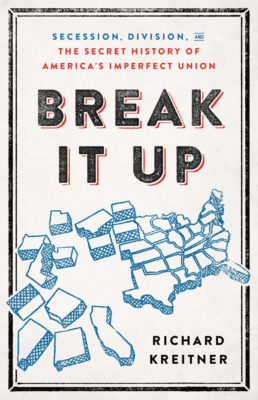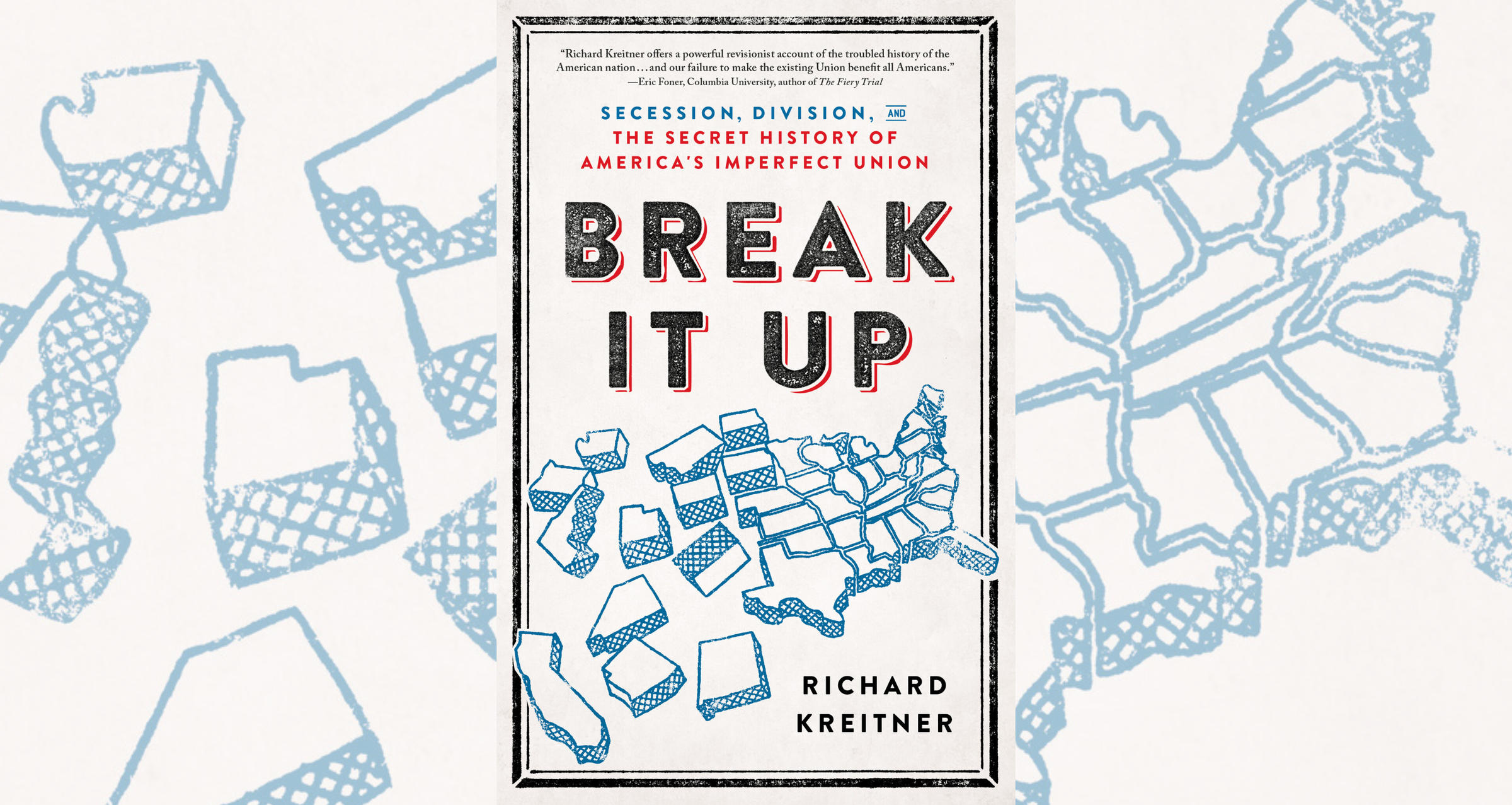When you hear someone make the argument that the American Civil War was really about states’ rights, it’s prudent to ask them the follow-up question, “states’ rights to do what?” This is not an unanswerable question. For example, “the great state of Texas” told us so quite explicitly in their secession document:
We hold as undeniable truths that the governments of the various States, and of the confederacy itself, were established exclusively by the white race, for themselves and their posterity; that the African race had no agency in their establishment; that they were rightfully held and regarded as an inferior and dependent race, and in that condition only could their existence in this country be rendered beneficial or tolerable.
That in this free government all white men are and of right ought to be entitled to equal civil and political rights; that the servitude of the African race, as existing in these States, is mutually beneficial to both bond and free, and is abundantly authorized and justified by the experience of mankind, and the revealed will of the Almighty Creator, as recognized by all Christian nations; while the destruction of the existing relations between the two races, as advocated by our sectional enemies, would bring inevitable calamities upon both and desolation upon the fifteen slave-holding states.
But what about a states’ right to abolish slavery or people not be pressed into service as a fugitive-slave catcher? To legalize cannabis or decriminalize hallucinogenic mushrooms? What about the right to have sanctuary cities?
Surely the “to do what?” is a critical question to answer about states’ right, just as there is no neutral principle in any aspect of politics.
Journalist Richard Kreitner’s book Break It Up traces the history of separatist movements in what had or would become “the United States of America”, looking not just at history as it happened but movements that just as easily might have happened and become our history instead.
Kreitner began writing the book, subtitled “Secession, Division, and the Secret History of America’s Imperfect Union”, in the spring of 2015, but since its release in the fall of 2020, it’s only become more relevant.
The history of the United States particularly following the Civil War has made us believe it’s natural to say “the United States is” when we could have just as easily continued to say “the United States are” or even “the American nations” when speaking of the same geographical territory.

If you are already somewhat knowledgeable about U.S. history, much of the material covered won’t be a surprise.
The early saber-rattling of South Carolina over tariff issues, abolitionists like William Lloyd Garrison agreeing with slavers about the inherent protections of slavery granted by the Constitution, the movement for a separate peace with Britain in the War of 1812, and Aaron Burr’s plot to create a new nation west of the Appalachians and utilizing the Mississippi river system for its exports are not exactly secrets.
The California and Texas republics are practically part of state lore.
But all of these things read differently when placed in a historical continuity of union and disunion, where a war between states might have happened at any time, not just 1861, and for reasons other than the defense of chattel slavery, although that remained the singular dividing issue for almost a century.
It’s a reminder that there are much more interesting counterfactuals and alternate histories to consider than, “What if the Confederacy won the war?”
Likewise, although Break It Up came out prior to the January 6th insurrection at the U.S. Capitol, it is much less shocking when looked at in the context of a persistent spirit of disunion and political violence to that end.
Representative Lauren Boebert is not the first legislator to bring a handgun into the Capitol; Representative Laurence Keitt had his own to hold other legislators at bay while Representative Preston Brooks beat Senator Charles Sumner near to death in 1856. Earlier, Robert E. Lee’s own father, Henry Lee III eventually died from wounds suffered defending a newspaper attacked by a violent mob in Baltimore due to the newspaper’s opposition to the War of 1812.
“Tarring and feathering” or “run out of town on a rail” is spoken of casually in public education curriculum rather than as the torture and political violence it was. And of course, the white supremacist violence resisting and rolling back Reconstruction involved many coups and attempted coups.
Leading up to the presidential election and even afterward, I expected much more political violence than we got. It’s possible that QAnon pacified many into thinking that everything was still going according to plan, therefore they didn’t need to do anything more than post online. But as bad as January 6th was, and as accurate as “insurrection” may be, it’s also critical to not fall back on purely legalistic arguments as we attempt to talk about or denounce it.
Colonel Robert E. Lee is not an inappropriate man to venerate with statues or high school names because he was a traitor and a loser; it’s inappropriate because he was a human and child trafficker who tortured people for profit and fought a war in defense of flesh-mongering. But this evaluation forces us to ask other questions. Thomas Jefferson’s rebellion was successful, but he, too, trafficked children as a way to maintain discipline among his enslaved laborers and tortured children to incentivize them to work harder.
There is no value-neutral way to talk about secession, insurrection, or treason; “to do what?” is just as important a question as with “states’ rights.”
For all that it does well, there are two areas where the book ends up feeling lacking. The first is very niche and won’t be important to most people: the citations are not marked out in the text and when trying to find the notes in the back of the book, they are not numbered, either.
If this is part of some scholarly tradition, I’m not aware of it, and it makes following up on some of the quotations and anecdotes more difficult, which is a shame because this book otherwise is a good jumping-off point for more detailed reading.
The second complaint is more substantial in the sense that it covers Black nationalism very little and Indigenous sovereignty not at all.
Some of the separatist movements discussed in the book seem to have very little chance of ever succeeding and are included more to reflect that that tendency still existed, such as the Sagebrush Rebellion.
But, up until the moment the U.S. decided to turn its postbellum war machine on the Plains Indians, there still remained the possibility that Indigenous people would retain some ancestral territory and have true sovereignty of their own.
Of all the counterfactuals presented in the book, the absence of that vision of the continent is noticeable. When Kreitner mentions the Republic of New Afrika of the late 1960s, drawing some continuity with the idea for a Black Southern republic formed of the former Confederacy that was proposed in the 1860s, that sort of imagination is quite powerful and continues to influence the present.
To reiterate, the book largely succeeds in its what it sets out to do: examining inherent and pervasive disharmony of settler nationalism in what is now the U.S.
But one final takeaway, particularly from the final two chapters that look at how the FBI’s COINTELPRO crushed Black, Chicano, and Puerto Rican nationalist movements, among others: when the federal government claims that it needs more anti-domestic terrorism powers in order to address specifically white nationalist and other fascist movements like those that contributed to the January 6th insurrection, remember that no such additional powers have ever been necessary when they have been infiltrating, disrupting, and arresting members of movements they actually view as a threat.
As long as people like U.S. Representatives Paul Gosar and Senator Josh Hawley continue to have sway in the Republican Party, the call will always be coming from inside the House (and the Senate).

